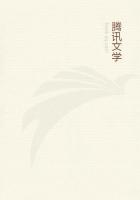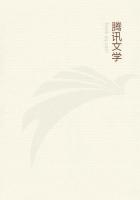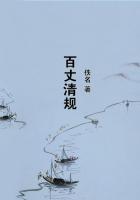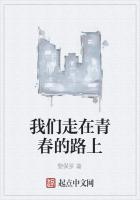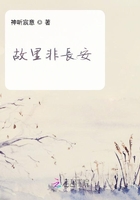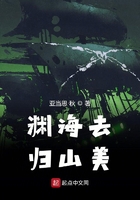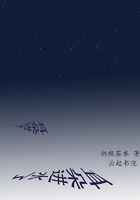I
Two miles from the village of Obrutchanovo a huge bridge was being built. From the village, which stood up high on the steep river-bank, its trellis-like skeleton could be seen, and in foggy weather and on still winter days, when its delicate iron girders and all the scaffolding around was covered with hoar frost, it presented a picturesque and even fantastic spectacle. Kutcherov, the engineer who was building the bridge, a stout, broad-shouldered, bearded man in a soft crumpled cap drove through the village in his racing droshky or his open carriage. Now and then on holidays navvies working on the bridge would come to the village; they begged for alms, laughed at the women, and sometimes carried off something. But that was rare; as a rule the days passed quietly and peacefully as though no bridge-building were going on, and only in the evening, when camp fires gleamed near the bridge, the wind faintly wafted the songs of the navvies. And by day there was sometimes the mournful clang of metal, don-don-don.
It happened that the engineer's wife came to see him. She was pleased with the river-banks and the gorgeous view over the green valley with trees, churches, flocks, and she began begging her husband to buy a small piece of ground and to build them a cottage on it. Her husband agreed. They bought sixty acres of land, and on the high bank in a field, where in earlier days the cows of Obrutchanovo used to wander, they built a pretty house of two storeys with a terrace and a verandah, with a tower and a flagstaff on which a flag fluttered on Sundays -- they built it in about three months, and then all the winter they were planting big trees, and when spring came and everything began to be green there were already avenues to the new house, a gardener and two labourers in white aprons were digging near it, there was a little fountain, and a globe of looking-glass flashed so brilliantly that it was painful to look at. The house had already been named the New Villa.
On a bright, warm morning at the end of May two horses were brought to Obrutchanovo to the village blacksmith, Rodion Petrov. They came from the New Villa. The horses were sleek, graceful beasts, as white as snow, and strikingly alike.
"Perfect swans!" said Rodion, gazing at them with reverent admiration.
His wife Stepanida, his children and grandchildren came out into the street to look at them. By degrees a crowd collected. The Lytchkovs, father and son, both men with swollen faces and entirely beardless, came up bareheaded. Kozov, a tall, thin old man with a long, narrow beard, came up leaning on a stick with a crook handle: he kept winking with his crafty eyes and smiling ironically as though he knew something.
"It's only that they are white; what is there in them?" he said. "Put mine on oats, and they will be just as sleek. They ought to be in a plough and with a whip, too. . . ."The coachman simply looked at him with disdain, but did not utter a word. And afterwards, while they were blowing up the fire at the forge, the coachman talked while he smoked cigarettes. The peasants learned from him various details: his employers were wealthy people; his mistress, Elena Ivanovna, had till her marriage lived in Moscow in a poor way as a governess; she was kind-hearted, compassionate, and fond of helping the poor. On the new estate, he told them, they were not going to plough or to sow, but simply to live for their pleasure, live only to breathe the fresh air. When he had finished and led the horses back a crowd of boys followed him, the dogs barked, and Kozov, looking after him, winked sarcastically.
"Landowners, too-oo!" he said. "They have built a house and set up horses, but I bet they are nobodies -- landowners, too-oo."Kozov for some reason took a dislike from the first to the new house, to the white horses, and to the handsome, well-fed coachman. Kozov was a solitary man, a widower; he had a dreary life (he was prevented from working by a disease which he sometimes called a rupture and sometimes worms) he was maintained by his son, who worked at a confectioner's in Harkov and sent him money; and from early morning till evening he sauntered at leisure about the river or about the village; if he saw, forinstance, a peasant carting a log, or fishing, he would say: "That log's dry wood -- it is rotten," or, "They won't bite in weather like this." In times of drought he would declare that there would not be a drop of rain till the frost came; and when the rains came he would say that everything would rot in the fields, that everything was ruined. And as he said these things he would wink as though he knew something.
At the New Villa they burned Bengal lights and sent up fireworks in the evenings, and a sailing-boat with red lanterns floated by Obrutchanovo. One morning the engineer's wife, Elena Ivanovna, and her little daughter drove to the village in a carriage with yellow wheels and a pair of dark bay ponies; both mother and daughter were wearing broad-brimmed straw hats, bent down over their ears.
This was exactly at the time when they were carting manure, and the blacksmith Rodion, a tall, gaunt old man, bareheaded and barefooted, was standing near his dirty and repulsive-looking cart and, flustered, looked at the ponies, and it was evident by his face that he had never seen such little horses before.
"The Kutcherov lady has come!" was whispered around. "Look, the Kutcherov lady has come!"Elena Ivanovna looked at the huts as though she were selecting one, and then stopped at the very poorest, at the windows of which there were so many children's heads -- flaxen, red, and dark. Stepanida, Rodion's wife, a stout woman, came running out of the hut; her kerchief slipped off her grey head; she looked at the carriage facing the sun, and her face smiled and wrinkled up as though she were blind.
"This is for your children," said Elena Ivanovna, and she gave her three roubles.

